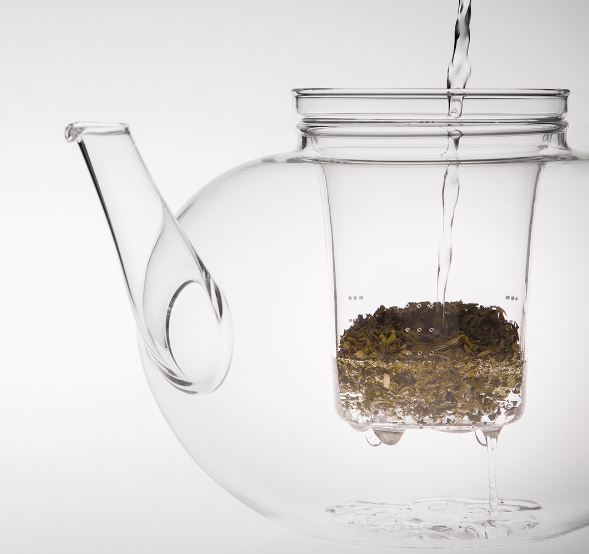Milyen egy jó marketing?
Milyen egy jó marketing?
A marketing alapvető szerepet játszik egy vállalat sikerében, mivel segít elérni a célközönséget, növeli az értékesítéseket, és erősíti a márka hírnevét. Egy jó marketing stratégia megkülönbözteti a vállalatot a versenytársaktól, és hatékonyan kommunikálja az ügyfelek számára, hogy miért érdemes éppen az adott terméket vagy szolgáltatást választaniuk. De mitől lesz igazán jó egy marketing? Nézzük meg részletesen.

1. Piackutatás és Célcsoport Meghatározása
Piackutatás Fontossága
A piackutatás az első lépés a jó marketing kialakításában. Meg kell érteni, hogy kik a potenciális vásárlók, milyen igényeik és preferenciáik vannak. Ez lehetővé teszi a vállalatok számára, hogy olyan termékeket és szolgáltatásokat fejlesszenek, amelyek valóban megfelelnek a piac igényeinek.
- Kutatási módszerek: Interjúk, kérdőívek, fókuszcsoportok, és online elemzések.
- Adatok elemzése: A gyűjtött adatok segítenek megérteni a vásárlói szokásokat, piaci trendeket és a versenytársak erősségeit és gyengeségeit.
Célcsoport Meghatározása
A célcsoport pontos meghatározása elengedhetetlen a hatékony marketing érdekében. A demográfiai, pszichográfiai és viselkedési tényezők figyelembevételével a marketing kampányokat személyre szabottan lehet kialakítani, ami növeli a relevanciát és az elköteleződést.
- Demográfiai adatok: Kor, nem, jövedelem, családi állapot.
- Pszichográfiai jellemzők: Érdeklődési kör, életstílus, értékek.
- Viselkedési adatok: Vásárlási szokások, márkahűség, termékhasználati szokások.
2. Hatékony Üzenetalkotás
Üzenet Megfogalmazása
Egy jó marketing üzenet tiszta, meggyőző és emlékezetes. A megfelelő üzenet átadása segít abban, hogy a fogyasztók megértsék a termék vagy szolgáltatás értékét.
- Egyediség: Mi különbözteti meg a terméket a versenytársaktól?
- Értékajánlat: Miért érdemes megvásárolni a terméket?
- Meggyőző erő: Az üzenet érzelmi és racionális elemeket is tartalmaz.
Kreatív Tartalom
A vizuális és szöveges tartalomnak kreatívnak kell lennie ahhoz, hogy megragadja a figyelmet. Az eredeti és jól megtervezett kampányok könnyebben megjegyezhetők és nagyobb hatást gyakorolnak a közönségre.
- Vizuális elemek: Logó, színek, dizájn.
- Szöveges tartalom: Szlogenek, történetek, információk.
3. Marketing Csatornák és Eszközök
Digitális Marketing
A digitális marketing elengedhetetlen része a modern marketing stratégiának. Az online platformok segítségével a vállalatok könnyen elérhetik a célközönséget és mérhető eredményeket érhetnek el.
- Keresőoptimalizálás (SEO): A weboldal láthatóságának növelése a keresőmotorok találatai között.
- Közösségi média marketing: Facebook, Instagram, Twitter és más platformok használata a márka népszerűsítésére.
- Email marketing: Személyre szabott ajánlatok és hírek küldése az ügyfeleknek.
Hagyományos Marketing
Bár a digitális marketing dominál, a hagyományos marketing módszerei továbbra is hatékonyak lehetnek bizonyos célcsoportok elérésében.
- Nyomtatott hirdetések: Plakátok, szórólapok, újsághirdetések.
- Rádió- és televízióreklámok: Széles közönség elérése.
- Személyes értékesítés: Közvetlen kapcsolat kialakítása az ügyfelekkel.
4. Mérés és Elemzés
Eredmények Mérése
Egy jó marketing kampány nem ér véget a végrehajtással; a folyamatos mérés és elemzés kulcsfontosságú a siker érdekében. Az eredmények mérése lehetővé teszi a kampány hatékonyságának értékelését és a szükséges korrekciók elvégzését.
- Teljesítménymutatók (KPI-k): Látogatottság, konverziós ráta, eladások növekedése.
- Visszajelzések gyűjtése: Ügyfélelégedettség, visszajelzések és kritikák elemzése.
Adatok Felhasználása
Az adatok felhasználása segít abban, hogy a jövőbeli kampányok még hatékonyabbak legyenek. A tanulságok levonása és a stratégiák finomítása javítja a marketing tevékenységet.
- Trendek azonosítása: Új piaci lehetőségek feltárása.
- Stratégiai döntéshozatal: A marketing költségvetés optimalizálása és a csatornák kiválasztása.
5. Innováció és Alkalmazkodás
Innovatív Megoldások
A marketing világában folyamatos innovációra van szükség a versenyképesség megőrzéséhez. Az új technológiák és kreatív megoldások alkalmazása segíthet kitűnni a tömegből.
- Új technológiák: AI, VR, AR használata a marketingben.
- Kreatív kampányok: Egyedi és emlékezetes megközelítések.
Alkalmazkodás a Változó Piaci Feltételekhez
A marketing stratégiának rugalmasnak kell lennie, hogy gyorsan alkalmazkodjon a piaci változásokhoz és a fogyasztói igényekhez. A vállalatoknak képesnek kell lenniük gyorsan reagálni a trendekre és a külső kihívásokra.
- Piaci trendek követése: Folyamatosan frissített stratégiák.
- Kihívások kezelése: Változó fogyasztói igények és gazdasági helyzetek.
A jó marketing alapja a mélyreható piackutatás, a célcsoport pontos meghatározása, a hatékony üzenetalkotás, a megfelelő csatornák kiválasztása, az eredmények mérése és elemzése, valamint az innováció és alkalmazkodás. Egy sikeres marketing stratégia nem csupán a termékek és szolgáltatások népszerűsítését szolgálja, hanem hozzájárul a vállalat hosszú távú növekedéséhez és piaci pozíciójának erősítéséhez is. A vállalatoknak folyamatosan fejleszteniük kell marketing tevékenységüket, hogy megfeleljenek a változó piaci körülményeknek és a fogyasztói elvárásoknak.








